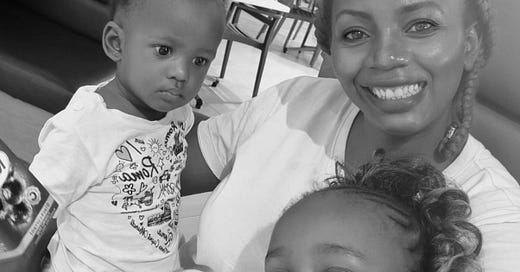Each morning I step into my role as an operations director, where leadership and decision-making demand my full attention. But as evening arrives and I return home, I step into another role—one no less important, and perhaps even more consuming: Mama.
Here at home, small hands tug at me for comfort, voices call out through the night with bad dreams, fevers, or just the need to feel close. No matter how tired my body feels after a full day of professional work, I show up. It feels like an instinct—an ancient wiring that turns exhaustion into tenderness, and fatigue into presence.
This rhythm of giving and showing up reminds me deeply of Mweria—the rotational labor system of the Kenyan coast. In Mweria, community members took turns tending to each other’s homes, crops, and needs. It was an organized sharing of labor and care where no one person was left to carry the weight alone. The whole community became a living network of support.
Motherhood feels like Mweria embodied on a deeply personal level. In both, there is no room for withholding. A child cannot wait until you are rested; their needs are immediate and constant. So too in Mweria—when a neighbor’s field needed tending or a roof needed repair, others stepped in without delay. There is no pause button when someone depends on you.
But the comparison deepens: just as Mweria operated on mutual trust and an understanding that today you give so tomorrow you may receive, motherhood is also an act of planting seeds for the future. The care I give my children now is not transactional; it is an investment in a future where they, too, will instinctively show up for others—their children, their communities, their world. In Mweria, a community’s strength was measured by how consistently its members showed up for one another. In motherhood, a child’s emotional, social, and even physical health often reflects this same principle.
And there is a quiet lesson in reciprocity here. Just as Mweria required everyone to take their turn, motherhood reminds us that the load cannot be carried by one person forever. Partners, extended family, even broader community support systems are vital. When they step in, it honors the same principles that made Mweria thrive.When practiced well, both Mweria and motherhood bear fruit that spreads far beyond the individual: good governance, increased skills, social cohesion, thriving nature, and economic prosperity. Children raised with present, nurturing mothers often grow into confident, empathetic, and resilient adults. Communities practicing Mweria became vibrant, resilient networks where no one was left behind.
There is a saying: “One hand cannot wash itself.” This truth lives in both motherhood and Mweria. In showing up for our children and for each other, we weave strength into the fabric of generations.
To mother is to step into this ancient rhythm of care and reciprocity. To participate in Mweria is to amplify that rhythm at the level of a community. Both remind us: when we show up, again and again, we plant seeds for a thriving, connected future.




the likeness is not a wonder it is revealing that the feminine energy required by any and all to mother is also what runs deep through Mweria, it is the capacity to tend and care and grow and expand and love ... i see them as one - thank you